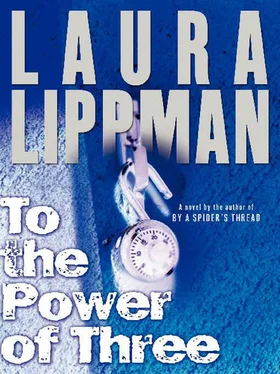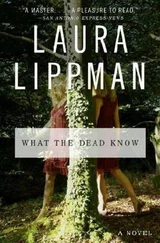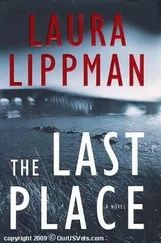“That’s great, Peter. Once you do, check in with me on my cell. I’ll be interested in hearing what Josie has to say when she can talk to a friend, instead of strangers. Now-you sure you don’t want a Blue Moon cinnamon roll? They’re homemade.”
The boy puffed out his cheeks and shook his head in regret. Only he wasn’t really regretful, Dale realized. Peter Lasko was glad to give up cinnamon rolls for the privilege of being handsome and buff. There would be time enough, to paraphrase Prufrock, for cinnamon rolls and whatever small treats he denied himself now. The waitress topped off Peter’s coffee, although it was barely down an inch, brushing her breasts against his arm as she leaned forward.
Dale’s water glass was empty, but no one seemed to care. And all the water he had downed in between gulps of his private coffee now seemed lodged somewhere in his chest. These days it was as if he could never get enough air, as if he were always in danger of suffocating.
A floater couldn’t helplosing things, Alexa told herself, pawing through a sheaf of papers for the second time, still trying to find the paper she was now sure that Perri Kahn had submitted just minutes before she had gone to the girls’ restroom to confront Kat. If the paper didn’t exist, she couldn’t give Perri a final grade and challenge Barbara on her refusal to grant the girl a diploma. Maybe it never existed, but Alexa had convinced herself that it did, that she’d held it in her hand the very moment the phone rang, a stapled sheaf of off-white typing paper in one of the distinctive fonts that Perri preferred. But the papers had been dropped, and the soda had spilled, and everything had been gathered up in such a rush-
She lifted her head at the sound of a student clop-clop-clopping down the hall, a would-be stealthy Billy Goat Gruff, trying to muffle the sound of her Dr. Scholl’s. It was Eve, trotting toward the exit, shoulders squared. Alexa called the girl’s name once, twice, three times before she finally turned around.
“Oh?” Eve said. “Were you talking to me?”
Several sarcastic replies occurred to her, but Alexa had learned that sarcasm didn’t work on these girls. “Got a minute? I want to talk to you.”
“I’m on a bathroom pass from health,” Eve began, but Alexa knew she was headed for her usual cigarette break in the trees, with Val and Lila.
“I’ll write you a note. Let’s talk.”
Alexa had a classroom for this period, but no real class. This had been her independent study session, and the five girls had all finished their work for the year, except for Jocelyn Smith, who had been given an extension for mental-health reasons. She said, and a family doctor agreed, that Jocelyn had been traumatized by the shooting. Alexa was reasonably sure that Jocelyn had just found an unimpeachable excuse for not finishing her work.
Alexa sat in one of the chairs in the front row, feeling that a desk was too much of a barrier to intimacy in a conversation. She was always attentive to such seemingly insignificant issues. When she was holding a class, her preferred configuration was a circle, although some teachers bitched if she forgot to have the students put the chairs back in their rigid little rows. And she insisted on a true circle, not one of those horseshoe-shaped parabolas, which maintained the teacher as focal point. Ladies of the Round Table, she had once dubbed this circle, although one of her students had quickly pointed out that the Arthurian ideal had not survived. “It was torn apart by a woman, in fact.”
Perri had made that contribution although her knowledge of King Arthur almost certainly came by way of Camelot as opposed to The Once and Future King . Alexa had countered with the story of the Paris peace talks and the argument over the table’s shape, an anecdote that one of her history professors had loved. But she might as well have been talking about a time as remote as King Arthur’s, given the girls’ furrowed brows. At the end of her story, there was a confused silence, and then one girl asked, “Did you march against the war and stuff?”
Alexa had to inform the girls that she had been born after the Vietnam war ended, a fact they seemed to find suspect. No matter how young you were, no matter how young you looked, students thought you were ancient, a witness to everything that had happened in the previous century.
“How are you, Eve?” No reproach in her tone, no reminder that the girl had been ducking her for three days.
“Good.”
“Good?”
Eve frowned. “I mean, good under the circumstances.”
“I imagine it’s hard for students to concentrate these days-not that June was ever known as a month for students to focus.”
“I’m okay. ” Said firmly now, in the manner of someone trying to get rid of a telemarketer.
“How are things at home these days?”
Eve squirmed a little in her chair. Her embarrassment about her parents was far more acute than the average adolescent’s. When Mr. and Mrs. Muhly had been summoned to school for that infamous meeting, Eve’s main concern had been that people would see just how old her parents were, and that would be held against her in a way that made the blow job on the bus utterly secondary. They were old, at least her father was, and her mother had disastrously retro taste.
“Fine,” Eve said at last. “Fine.”
Frustrated, Alexa decided to go straight to the matter. Directness was a risky tactic with a girl like Eve, but she hoped her reputation for being truthful and loyal would pay off here. And Eve owed her.
“Did you ever figure out who spoke to you that day? Who you overheard talking about the girls’ room and the gunshot?”
“Nope.” She was swinging her head so hard that her fine dark hair lashed at her cheeks.
“It could be important. You might know something crucial to the investigation and not even know you know it.”
She had expected Eve to look intrigued, but the girl just glowered, as if having vital information were an unfair burden.
“The thing is…there are so many rumors going around. The Kahns have a lawyer. Josie Patel’s family has hired a lawyer. Even Mr. Hartigan has a lawyer. I’ve heard that Perri wrote Kat some sort of letter, too.”
Eve’s face was now a classic teenager’s mask, her eyes focused on some spot over Alexa’s right shoulder.
“So the girl you overheard …” Alexa, no slouch at nuance in conversation, gave this word the most subtle rendering she could, something well short of the arch invisible quote marks used by doubters, but a tone shot through with light challenge. “The girl you overheard…well, maybe it’s the age-old case of someone saying she heard something happened to a friend, when it was really her. This girl, I mean.”
It was you, Eve. Admit it was you.
“And maybe she didn’t just hear something. Maybe she saw something.”
“I wasn’t there,” Eve said, her words coming with painful slowness. “I wasn’t anywhere near there.”
“But the girl who spoke to you…?”
“The girl I overheard.” Eve’s smile was triumphant.
Alexa found herself thinking of one of the few happy memories she had of her father, when he had told her she could win ten dollars by playing the “No” game. He explained the rules at great, ponderous length, speaking for almost ten minutes. She must answer “No” to every question, whether it was the truthful answer or not. “No” was the only answer permitted. The game would go on as long as she was successful. It might go on for hours. Did she understand? “NO,” Alexa had roared, and her father had laughed. But he had also tried to renege on the promise of the ten-dollar payment. No matter. Alexa was sure her five-year-old face had looked much as Eve’s did just now. Victorious, but a little fearful, too, as if there would be consequences for winning this point.
Читать дальше












